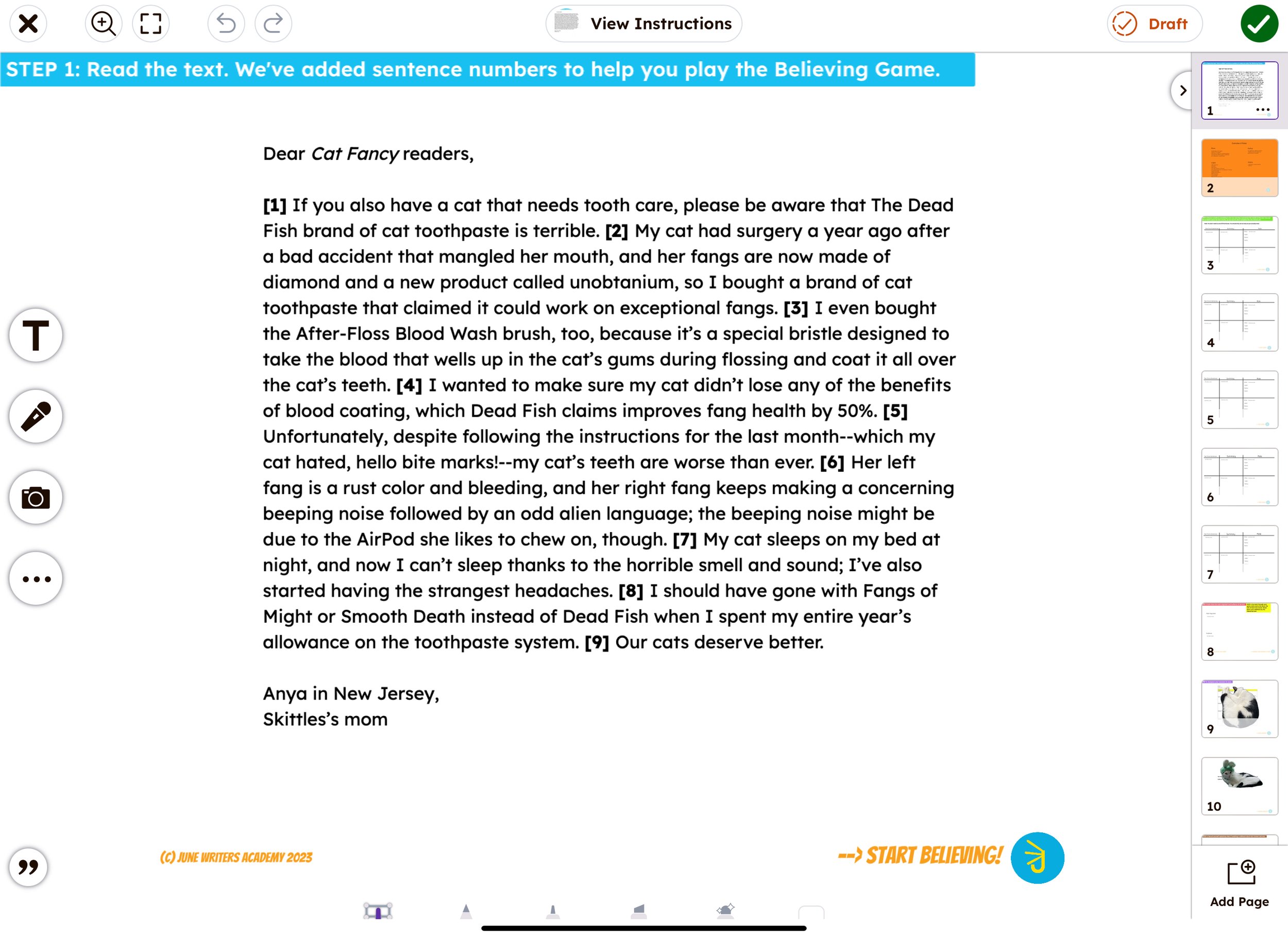The June Writers Academy Blog
Your guide to supporting your child’s development as a writer and thinker.
Parent Tip: Writing essays
What does it take to write juicy essays with relative ease beyond the basic ability to write mechanically sound sentences and type or handwrite at length (both important)? The following are what June Writers ensures kids learn before they tackle essay writing:
Parent Tips: Lesson 3.3
In Lesson 3.3, we ask kids to adapt existing paragraphs to appeal to specific audiences.
Parent Tips: Lesson 3.2
In Lesson 3.2’s practices, we are asking your child to put together the concepts of audience and argument, which is a Big Brain Leap.
The layers of an argument
We’ve written before about the importance of teaching kids to write multi-layered arguments early in their development process. Writing three-layered arguments is the key work of our Level 2: Arguments in Microcosm program, but most kids and adults don’t immediately understand what this means—or looks like. So, here is a breakdown of what the different layers look like when it comes to kid writing.
News: Level 3 is now live!
Level 3: Texts Under Scrutiny is now live!
If your child struggles with or is ready to take on analytical reading and writing about challenging non-fiction texts, Level 3 is their rocket to success. Your child will learn:
Parent Tips: Practice 3.4.2
In Lesson 3.4.2, your child will be presented with an unfamiliar text and asked to use their new Level 2: Inspectional Reading and Level 3: Analytical Reading skills to parse it. We’ve chosen three texts from the real world, including excerpts from the UN Convention on the Rights of Children, a piece of legislation from the U.S. Congress, and a letter from someone famous. These first two texts will be in formats unfamiliar to most kids and may feel overwhelming to some kids.
Parent Tips: Lesson 3.4
In Lesson 3.4, we introduce the concept of higher-level reading and teach your child how to do Level 2: Inspectional Reading and the beginning parts of Level 3: Analytical Reading.
Sample Practice: Level 3
Practice 3.8.3: Playing the Believing Game 1 is the first half of a big new skill for kids: critical analysis of the content and form of a text. The Believing and Doubting Games ask kids to play pretend and first, imagine that they believe absolutely everything in the text and use that believing brain to analyze what the text is saying and doing.
Sample Practice: Roots
See what a typical Greek and Latin roots practice looks like in our curriculum.
Parent Tips: Practices 3.10.2-3.10.5
The big moment has finally arrived! After spending many practices dissecting complex texts, understanding exactly what they say, how they say it, the foundational assumptions, the embedded questions, the special terms, and then all the ways that the authors might be wrong, your child will be asked in Practices 3.10.2-3.10.5 to decide if they think the arguments in the texts are successful. Deciding what you think is no small task because there is no right or wrong here—with some exceptions. Instead, there are only the opinions your child can support with evidence and sound reasoning.
Parent Tips: Practice 3.8.2
It can be surprisingly difficult to summarize an argument in one sentence, but it’s worth the effort.
Parent Tips: The Believing & Doubting Games
The first time that your child plays the Believing and Doubting Games will be Big Brain Leaps.










